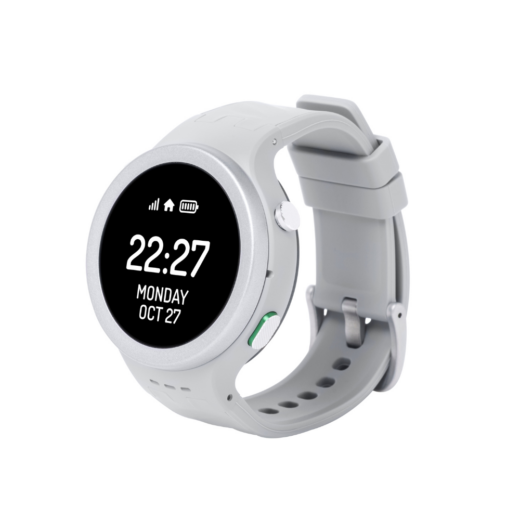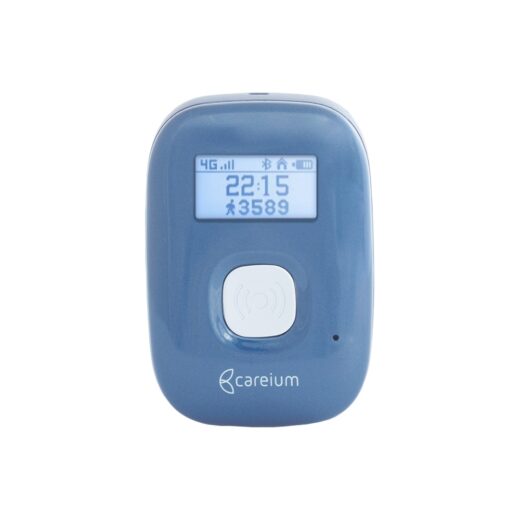Empowering active ageing for people living with dementia
Maintaining an active and purposeful life is vital for everyone, especially for individuals living with dementia. Engaging in activity not only helps sustain physical and cognitive abilities but also nurtures emotional and social wellbeing, enhancing the quality of each day.
SCI Insight is a science communication platform dedicated to making complex scientific topics accessible to the public. Through research-based articles and case studies, they explore diverse scientific subjects – from fundamental concepts to cutting-edge innovations, with the goal of fostering greater understanding and engagement with science.
This article draws on SCI’s examination of active aging research, featuring insights from Swedish care experts about the role of GPS technology in dementia care. The findings demonstrate how scientific understanding, when applied thoughtfully, can create meaningful improvements in daily life for both individuals with dementia and their caregivers. It focuses on how GPS alarms can empower individuals to maintain active lifestyles, enhancing their quality of life and potentially slowing disease progression.
SCI collaborated with Kristina Silverarfve, Divisional Manager at Nyköping municipality, and Åsa Trolle, Divisional Manager at Östersund municipality in Sweden, to share their experience on the effectiveness of GPS alarms in dementia care.
The benefits of outdoor activities for dementia
Numerous studies highlight the physical and psycho-social benefits of outdoor activities for people living with dementia. Activities such as walking, gardening, swimming, and hiking provide substantial health benefits and are strongly recommended by the World Health Organization (WHO). In fact, the WHO suggests adults engage in at least 150 minutes of moderate physical activity each week to reduce cognitive decline risks.
Spending time outdoors has been shown to improve sleep, appetite, memory, and reduce restlessness in dementia patients. A UK-based study observed significant reductions in agitation among dementia patients who spent just 30 minutes daily in gardens. Similarly, a US-based study found improved sleep and reduced behavioural challenges among residents of care homes exposed to natural daylight.
Addressing safety concerns with GPS alarms
Caregivers often worry about the outdoor safety of loved ones suffering from dementia. However, these concerns should not limit a person’s freedom or ability to remain active. GPS alarms play a pivotal role in alleviating these concerns, offering caregivers peace of mind and helping individuals stay independent longer.
GPS alarms can provide functions such as location tracking, alarm signals, direct calling, and custom reminders tailored specifically to the user’s needs. These personal alarms empower people with dementia, allowing them the dignity of independence while ensuring safety.
For further insights into suitable GPS alarms, explore our personal alarms.
Experiences from Swedish municipalities
Kristina Silverarfve shared insights on their use of GPS alarms. Approximately 30 residents in Nyköping municipality are currently using GPS alarms, initially distributed specifically to those diagnosed with dementia. Silverarfve highlighted the importance of such technology in caregiving:
“We don’t have the manpower to fulfil the roles in the care sector, and the care recipients have increasing demands and requirements. I believe that flexible technology will be important to honour the needs and lifestyles of individuals regardless of the kind of diagnosis. It is critical to encourage people to stay active for as long as possible. The longer they stay active and independent, the later they will need formal care services or support from professionals”
Sweden remains a global leader in elderly and dementia care, with person-centred care forming a core element of its national strategy. Silverarfve emphasises Sweden’s commitment to respecting individual autonomy:
“[A] person living with dementia [in Sweden] must decide for themselves if they want to have any kind of personal alarm or care service. Sweden is unique in that we uphold personal integrity to a high degree. Even if family members see value in a safety device, we cannot do anything unless there is a power of attorney in place for the person with a diagnosis”
Similarly, Åsa Trolle highlighted their extensive use of GPS alarms in Östersunds municipality. Around 420 residents currently use them, with approximately 35–40 diagnosed with dementia. Östersund municipality proactively offers these alarms to anyone requesting them, not only those with a diagnosis.
Trolle further emphasises the importance of introducing GPS alarms early:
“Citizens of [Östersund] must decide for themselves if it is suitable for their lifestyle, but it is encouraged so that everyone stays as active as possible. It is important that [GPS alarms] (…) is issued as early on in the diagnosis as possible so that the user may become accustomed to it as quickly as possible. It provides freedom (…) – anyone should be able to do [whatever] they want, with dignity and safety in mind.”
Enhancing lives, reducing costs, increasing peace of mind
By empowering people living with dementia with the help of a GPS alarm, municipalities encourage healthier, active lifestyles. This approach can slow disease progression, improve overall health, and reduce long-term healthcare costs.
The economic advantages are clear: the cost of equipping someone with a GPS alarm is considerably lower compared to expenses incurred during search-and-rescue operations if someone goes missing. As Trolle explained:
“If someone [without a GPS alarm] goes missing, emergency services like the police or fire department become involved, significantly increasing costs immediately.”
Above all, GPS alarms provide immense emotional benefits, offering peace of mind to families and loved ones. Trolle shared a moving story of a couple who, with the help from a GPS alarm, was able to go on holiday in Spain. They received support from Careium’s monitoring centre to adjust the base station coordinates to match their hotel and could therefor enjoy their stay, without anxiety over the husband’s safety. The wife described it as their “best holiday ever.”
Ultimately, these devices help people regain confidence, freedom, and the ability to enjoy life to the fullest.
Last updated: July 2, 2025
Discover more
- Explore how the i‑care® plus app can help you be more involved in your loved ones care.
- Read about why you as a health care provider should partner with us.
Products
Download whitepaper (original):
Related white papers

How smart care tech tackles loneliness in ageing
Read more about How smart care tech tackles loneliness in ageingTech as a solution to the silver tsunami
Read more about Tech as a solution to the silver tsunamiSafer homes for an ageing population
Read more about Safer homes for an ageing populationDigital telecare: Enhancing healthy ageing through innovation
Read more about Digital telecare: Enhancing healthy ageing through innovationPlease let us know how we can assist you, and we will respond promptly.
* required fields

